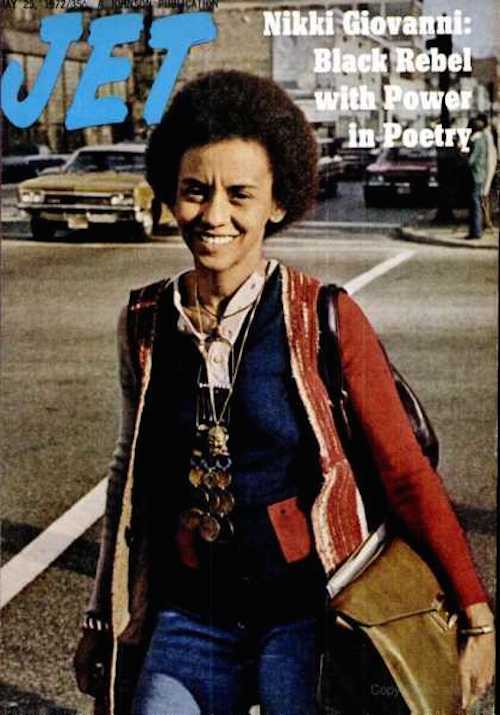I Don’t Need Diverse Books: On Re-defining 'We' and Making Black Art

Hi, American literary community! It’s me, the diversity. I’m sure you recognize me—the face you turn to as Black history month approaches, the strategic audience to your rant about police brutality, the friend you eye during a reading when Cave Canem is mispronounced, the workshop peer you consult when you’re worried your poem “might be offensive to some people of color.” It’s me, all of us! The majority of society.
I understand what you mean when you say you’re “trying to be more diverse.” You mean Native, you mean brown, you mean Black, you mean trans, you mean Blacker. Go ahead, you can say it. Say it out loud right now. Black. We also understand that our diversity excites you. That mouths water at the words “authentic” or “exotic” or “foreign.” What I mean is, let’s remember that there are people behind these numbers, these hashtags, these images you devour, these poems you solicit and share. What I mean is, I’m a person, and it’s uncomfortable when you forget that. Sometimes I feel myself shifting from Morgan, Age 27, Brooklyn, Sagittarius into a checked box next to woman, POC, diverse, African-American. Sometimes I feel my little cousin morphing into a background photo for a #BlackLivesMatter open mic night.
I, we, don’t need to read more diverse books—We’re reading them, we’ve written them, we’ve lived them. We’ve been here. There’s an audience for #WeNeedDiverseBooks, just like there’s an audience for #BlackLivesMatter: and it isn’t us, white male minority, it’s you. You need to read and publish more diverse books and writers. You need to make space, to do the work, to be the change you wish to see, etc. etc. etc. I already know I matter.
Let me be clear: I do want more diverse books in the world, and I’m tremendously glad for the #WeNeedDiverseBooks campaign, and thankful to those rallying behind it. I want next season’s breakout novel to potentially be about someone who’s shaped and colored like me and my friends. I want to send black girl young adult books back in time to my teen self. I want us on syllabi and best seller lists. But what I mean is, let’s remember that “we” isn’t everyone, and that’s ok. And that’s good.
I want to shift the conversation for a moment, because I’m tired turning the same words over in my mouth like a never-ending Gobstopper. I’ve been thinking about the moment in 1966 when Amiri Baraka wrote “Black Art” and outlined the goals of the new New Negro: “We want a black poem. And a Black World.” The world then, as the world tends to be, was a wreck. The blood of black Americans was on fire. Activists in every country were forging a revolutionary consciousness that was rooted in ideological interrogation.The revolution, though rooted in direct confrontation, was made intellectual, and required a component of self-discovery and psychological becoming.
Stokely Carmichael wrote: “Only black people can convey the revolutionary idea that black people are able to do things themselves. Only they can help create in the community an aroused and continuing black consciousness that will provide the basis for political strength.” In order to assert a strong image of black identity toward the state, black people have to believe it themselves, a difficult task under a white supremacist power structure. Revolution comes from self-definition. And self-definition is found in art. It’s this belief that bore the Black Arts Movement, and it’s one I need to remember now. That these abstract books and lives are part of my identity. That the more I see myself—not as negation, not as hashtag, but as whole—the more I can fully exist. Diverse representation isn’t just fair or overdue, it’s an emblem of a consciousness shift. Of re-defining we.
I’m thinking of Nikki Giovanni. The way she defined and redefined black identity, black femininity, black love, political revolution. Her “Beautiful Black Men (With compliments and apologies to all not mentioned by name)” is a multi-layered expression of reverence for the romanticized black male body and attitude. “Poem (No Name No. 2)” is a cubist depiction, and urgent: “Bitter Black Bitterness /Black Bitter Bitterness /Bitterness Black Brothers /Bitter Black/ Get /Blacker Get Bitter /Get Black Bitterness /NOW.” In few words, the poem imposes a critique on black anger, and explores how bitterness is irrevocably attached to the black persona and psyche. I return over and over to “My Poem” as a reminder that art is an opportunity for us to locate our identities and create portraits of our worlds. As a black woman, I can think of almost no other space where I am allowed to do this for myself.
“Diversity” is slowly becoming a hollow word for me. A word without the face of my brother or my mom or my sister-friend. For me, diversity isn’t a challenge, or something to consider abstractly as the subject of a poem, or something to seek. It’s this life I’m living. It’s this exhale.
“I really hope no white person ever has cause/ to write about me” Giovanni writes in "Nikki-Rosa, “because they never understand/ Black love is Black wealth and they’ll/ probably talk about my hard childhood/ and never understand that/ all the while I was quite happy.”
Morgan Parker is the author of the poetry collections Other People’s Comfort Keeps Me Up At Night (2015...
Read Full Biography

